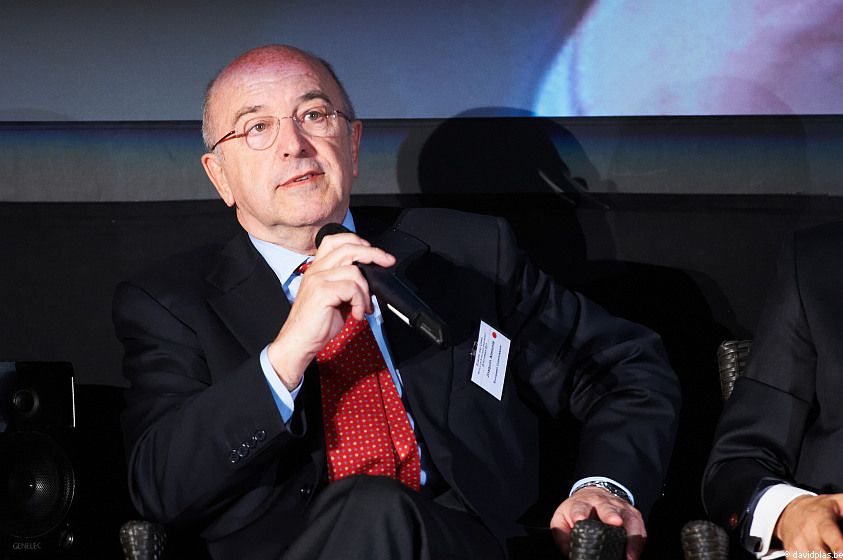Prof. Joaquín Alumnia: The EU Post-Brexit – WES 2019
On the final day of the Warwick Economics Summit, former Vice President of the European Commission, Professor Joaquín Almunia, gave a talk examining the current issues facing the European project. In the past, the EU played an important role in “building peace, prosperity, and welfare, through shared democratic values and freedoms”. Although we cannot deny the difficulties that are currently facing the EU, he says that the project has a lot of potential, and will help us and future generations to live in a better future.
Professor Almunia provided an in-depth investigation into the risks of the current political sphere
It’s been just over a decade since the global financial crisis and Europe has this very cumbersome legacy to deal with – which Professor Almunia described as part of the ‘poly-crisis’ facing the European parliament. Professor Almunia provided an in-depth investigation into the risks of the current political sphere. One of the products of this atmosphere is that the democratic principles underpinning the EU are “under attack”. Within the borders of Europe, some sections of society are putting democracy at serious risk, and they have “not being properly confronted”. Describing “radical nationalism [as] an issue facing a number of European countries”, he explained how some of its supporters capture the public’s attention with “simplistic arguments” – which he demonstrated are dangerous because they have “the high risk of eliminating the substance of the question you need to solve”. He spoke of how, during the run-up to the Brexit vote, “no real arguments emerged in the campaigns”, and that now “during the negotiations, all the problems that were not discussed during the campaign, all the facts, [have come] out”. He suggested that “powerful arguments” are needed from EU representatives, to combat the “irresponsible political behaviour” that led to Brexit.
His main rhetoric was to emphasise the need for a “relevant European Union”
So, he asked, what can we change? His main rhetoric was to emphasise the need for a “relevant European Union”, because he asserted that now, more than ever, we need global organisations to cooperate. The nation states are powerful, and will continue to be powerful – but they are not powerful enough to eliminate the vital problems we are now presented with. In his words, “We need a relevant European union to lead fight against global climate change, to provide stability, export our values, and not risk importing values that are against our fundamental beliefs”. He suggested that The EU needs more bottom-up political representation in individual nations, because otherwise people are disconnected with what the EU does. He emphasised that “Europe is not only about what is discussed and decided in Brussels” – and this needs to be conveyed to the general public in member-state nations. Politicians at the local level need to “organise our own defence”, to reinforce what is going on in the upper levels of the European constitution, so that people are not distanced from the EU. This is what is needed for Europe to move forward, and he finished the talk with his hope that “if Brexit takes place, it will give all of us, all Europeans, an important lesson on how important the European project is.”

Comments